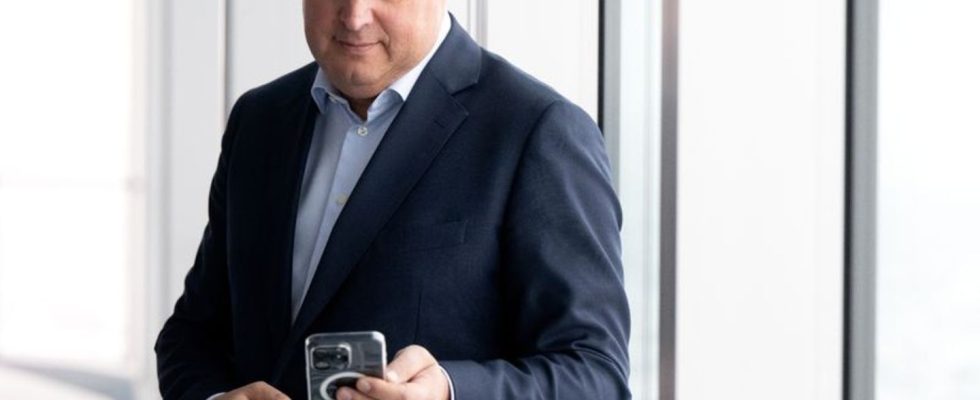telecommunications
O2 boss insists on frequency extension
“There are still tunnels from the imperial era that are under monument protection and into which we are not allowed to lay cables”: Markus Haas. photo
© Sven Hoppe/dpa
About every five years, the federal government auctions usage rights to frequencies that cell phone network operators need. The next auction could be canceled, although the state would probably earn billions.
In a debate whose results are groundbreaking for future German cell phone networks O2 boss Markus Haas reiterated his call for an extension of the current usage rights by eight years.
“If we don’t get an extension, we have no planning security to be able to close the last supply gaps and provide everyone in Germany with 5G,” said the CEO of Telefónica Deutschland (O2) to the dpa in Munich. The quality of all German networks would suffer if there was an auction next year – there was too little spectrum to distribute among four companies.
Mobile operators use different radio bands for their cell phone networks, the usage rights for which have previously been auctioned with a time delay. The last auction to date took place in 2019, in which the industry committed to paying 6.6 billion euros. For the first time in a long time, not only the three established providers Deutsche Telekom, O2 Telefónica and Vodafone took advantage, but also the newcomer 1&1.
Federal Network Agency proposes waiving auctions
The next auction is actually scheduled to take place in 2024. However, there is then too little spectrum for it to be easily divisible by four. The Federal Network Agency therefore proposed a waiver. But this would be bad for the newcomer 1&1, which wants to have access to additional frequency bands for its previously very small network. The federal authority wants to make a final decision in spring 2024.
1&1 insists on “appropriate frequency equipment,” as a company spokeswoman puts it. When they took part in the auction for the first time in 2019 and committed to paying billions, “subsequent access to additional frequencies was firmly anchored” in the award conditions. Anything else would be “legally vulnerable and would thwart fair competition.”
The Federal Cartel Office is on the side of 1&1 in the debate. The competition authorities warn against an extension because they fear negative consequences for competition and thus for consumers. The Monopolies Commission also has concerns, but sees no better solution due to the lack of alternatives – it is only in favor of an extension of three years so that the disadvantage for 1&1 remains minimal.
“Win-win situation”
O2 boss Haas points out that 1&1 is not aiming for real space supply this decade anyway. The company from Montabaur wants to reach at least 50 percent of German households with its antennas by the end of 2030. Where 1&1 does not operate itself, customers are currently connected to the O2 network and in the future to the Vodafone network, with so-called national roaming. “If the usage rights of the three network operators were extended until the end of 2033, real nationwide coverage would be possible,” says Haas. “1&1 would also benefit from national roaming – that would be a win-win situation.”
According to the Federal Network Agency’s proposal, the usage rights should be extended by five years. The established network operators would have to pay low fees and commit to reaching at least 98 percent of households in sparsely populated areas with a download rate of 100 megabits per second. So far there is no such rule specifically tailored to the country; it would improve the situation in villages and towns.
“There are still tunnels from the imperial era”
In addition, every network operator should have to supply all federal highways with 100 megabits per second – so far the requirement only applies to the industry as a whole: If a provider does not offer a network on a route, this does not have a negative impact on the requirements if the other network operators are transmitting . However, this is of no use to a customer of one provider, he still has no network. When asked whether O2 could meet the tightening of the rules, company boss Haas said: “If that is the requirement, we will meet it.”
This involves investments and the help of other actors is necessary, such as the railways and authorities. “We have to intensify our cooperation with the railways in order to really have good mobile communications in all tunnels.” In some places it is simply not possible to install antennas at the moment. “There are still tunnels from the imperial era that are listed buildings and into which we are not allowed to lay cables.”

